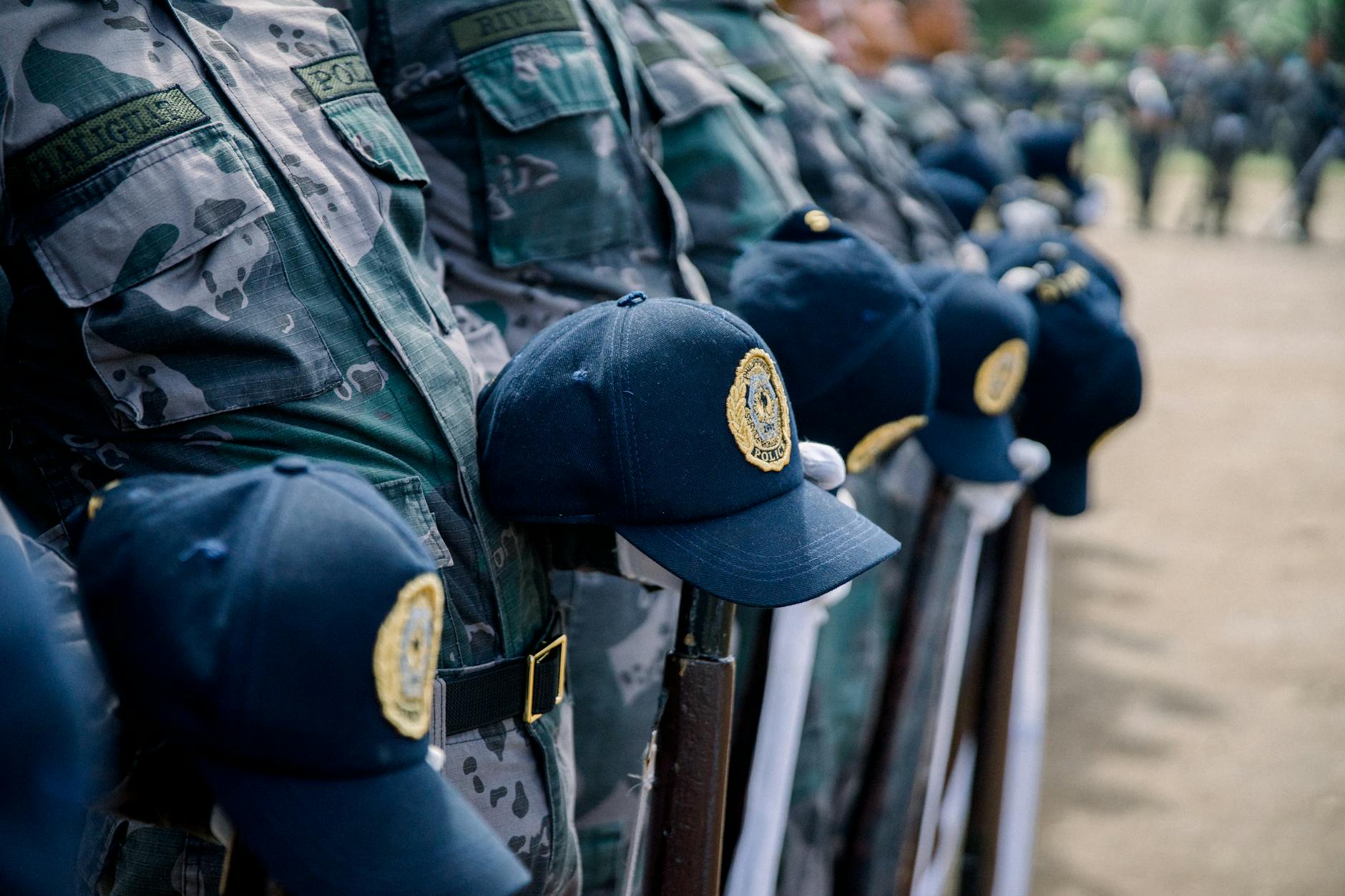How to Navigate National Police Checks in Australia

Basics of National Police Checks
What They Include
In the vibrant business district of Collins Street, where meetings and networking events shape the future of Melbourne's businesses, understanding the esencial elements of a national police check qld is crucial for any HR professional. These checks typically encompass a review of an individual's criminal record check across various Australian jurisdictions. The primary goal is to ensure candidates meet the required safety and trust standards before joining an organisation.
Who Needs Them
So, who should undergo a police check wa? Generally, candidates in roles involving trust, safety, or security, such as positions in education, healthcare, or finance, will require a thorough background check. However, many companies, particularly in tech start-ups, opt to conduct them across all levels of employment as part of their recruitment best practices. This helps maintain a safe and trustworthy work environment, echoing Liam's objective of fostering an inclusive workplace.
How They Work
The process of conducting a police check is an integral aspect of recruitment. Typically, a candidate consents to the check and provides necessary identification. These details are then submitted to accredited agencies, which process the information. The results are usually generated promptly, helping HR efficiently manage the hiring timeline and maintain a positive candidate experience. Ensuring consistency across various states is key, as it addresses challenges that HR professionals like Liam often face in their roles.
Steps to Obtain a Police Check
When it comes to obtaining a national police check nsw, the process can seem daunting, but with a few steps, you can simplify it and ensure you meet all requirements. A successful background check requires choosing the right provider, understanding the application process, and efficiently obtaining your results.
Choosing the Right Provider
Selecting the right service provider is crucial. It's vital to ensure the provider is accredited by the Australian Criminal Intelligence Commission (ACIC). This verifies the integrity of the check process, as well as its alignment with legal standards. Spend time looking into providers, especially those recommended at networking events at the Melbourne Convention and Exhibition Centre, to help refine your search for a reputable one.
Application Process
The application process usually involves submitting personal details and identification documents. Make sure to have these documents at hand:
- A form of official identification, such as a driver's licence or passport
- An address history for the past five years
- Consent forms allowing the provider to access your criminal history
An understanding of these requirements enhances the candidate experience by streamlining the process. Staying organized and knowing what to prepare will prevent unnecessary delays.
Getting Results
Once the application is complete, results typically arrive within 48 hours. In some cases, a national criminal history check may take longer if manual processing is needed. Staying informed about timelines ensures you maintain clear communication with candidates, a practice often discussed during meetings at Federation Square. This proactive approach helps manage expectations and enhances trust in the hiring process.
Variations by State
Differences in VIC
In navigating the recruitment landscape in Victoria, understanding the nuances of police clearance sa is paramount. As a talent acquisition specialist in Melbourne, I'm acutely aware of how state-specific requirements shape recruitment processes. VIC requires organizations to adhere to particular guidelines when conducting these checks. For instance, the application must specify the purpose of the check, underscoring the state's commitment to tailored and precise information for each job role. This ensures that businesses along Collins Street maintain a robust and secure staffing strategy, crucial during meetings at Federation Square, where the importance of trust cannot be overstated.
Insights on TAS Requirements
When turning our attention to Tasmania, the process becomes nuanced. The state maintains specific steps for obtaining a police check sa, which necessitates flexibility in recruitment practices. Tasmanian checks often entail an additional verification layer to best serve the locality's unique legal checks, a practice that may differ from other states. This requires HR teams to recalibrate their approaches to ensure compliance and continued success during networking events at the Melbourne Convention and Exhibition Centre.
NSW Specifics
New South Wales introduces its own set of requirements, further complicating the recruitment terrain. NSW has a distinct focus on safeguarding sensitive information, aligning with privacy standards that differ slightly from other states. Navigating these differences is essential for ensuring that your credence in workplace safety resonates throughout your candidate evaluations. It's through understanding such intricacies that HR specialists can effectively manage background check expectations while prioritizing a seamless candidate experience.
Ensuring Compliance
Best Practices for HR
In the bustling setting of "meetings at Federation Square" and the lively energy of Melbourne, staying ahead in "recruitment best practices" is crucial. As HR professionals, it's important to implement a robust criminal background check process. Emphasising transparency during recruitment not only builds trust but also strengthens your company's reputation. It's essential to balance thorough vetting with a positive candidate experience.
Maintaining a clear and consistent communication channel with candidates helps them understand the necessity and importance of background checks. This approach ensures they feel informed and valued, even as they undergo these essential checks.
Privacy and Data Handling
When it comes to handling personal data, particularly in police check tasmania, respecting candidates' privacy is paramount. Your team must remain up-to-date with the Australian Privacy Act and any amendments relevant to recruitment processes. Secure data storage and limiting access to sensitive information to authorised personnel only helps build a trustworthy HR system.
Staying Updated with Changes
The landscape of background checks, including variations like those in Tasmania, regularly evolves. Staying informed through industry-specific updates and participating in networking events, such as those at the Melbourne Convention and Exhibition Centre, will keep your HR practices compliant and competitive. Regularly reviewing and updating your processes ensures that your team remains compliant and assists in effectively integrating insights from national criminal history checks.
Frequent Errors
Misinterpretation of Results
In the dynamic world of recruitment, particularly when immersed in the vibrant energy of Collins Street discussions or during networking events at the Melbourne Convention and Exhibition Centre, criminal background checks can sometimes present challenges. One common misstep involves misinterpreting results. As a talent acquisition specialist, it's essential to remember that not all findings directly impact a candidate's suitability for a role. Thoroughly analysing the context and nature of the offence is crucial, as some records might be outdated or irrelevant to the position in question. Making assumptions without a comprehensive review could result in missing out on valuable talent.
Overlooking State Requirements
Navigating the patchwork of state-specific rules is another tricky area. Victoria, for example, may have unique requirements compared to New South Wales or Tasmania. During HR meetings at Federation Square, it's important to re-emphasise the need for up-to-date knowledge on these differences. Overlooking state-specific requirements can not only impact recruitment decisions but also put your organisation at risk of non-compliance. Ensure your teams are well-versed in the distinctions, leveraging resources that keep you informed and compliant across state boundaries.
Failing to Verify Provider Credentials
Finally, the delegation of checks to unverified providers can spell trouble. It's a fundamental step in recruitment best practices to scrutinise the credentials of your chosen criminal background check providers. Make sure they are accredited and reliable to maintain the integrity of your recruitment process. Reliable verification helps in maintaining trust with candidates and ensures the accuracy of the information that underpins your hiring decisions, fostering a smooth and compliant recruitment experience.


